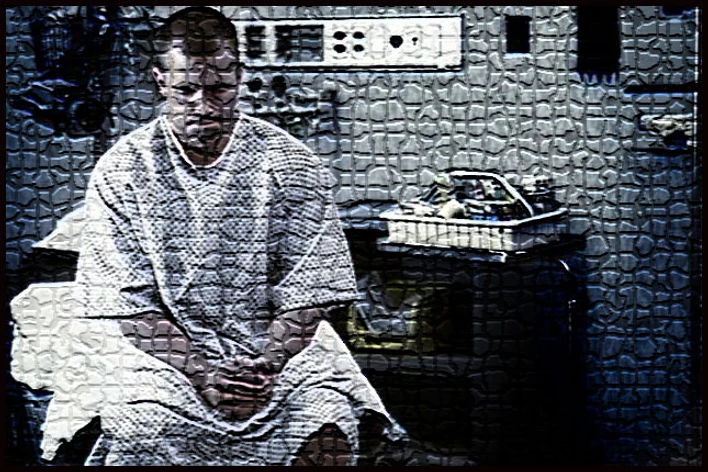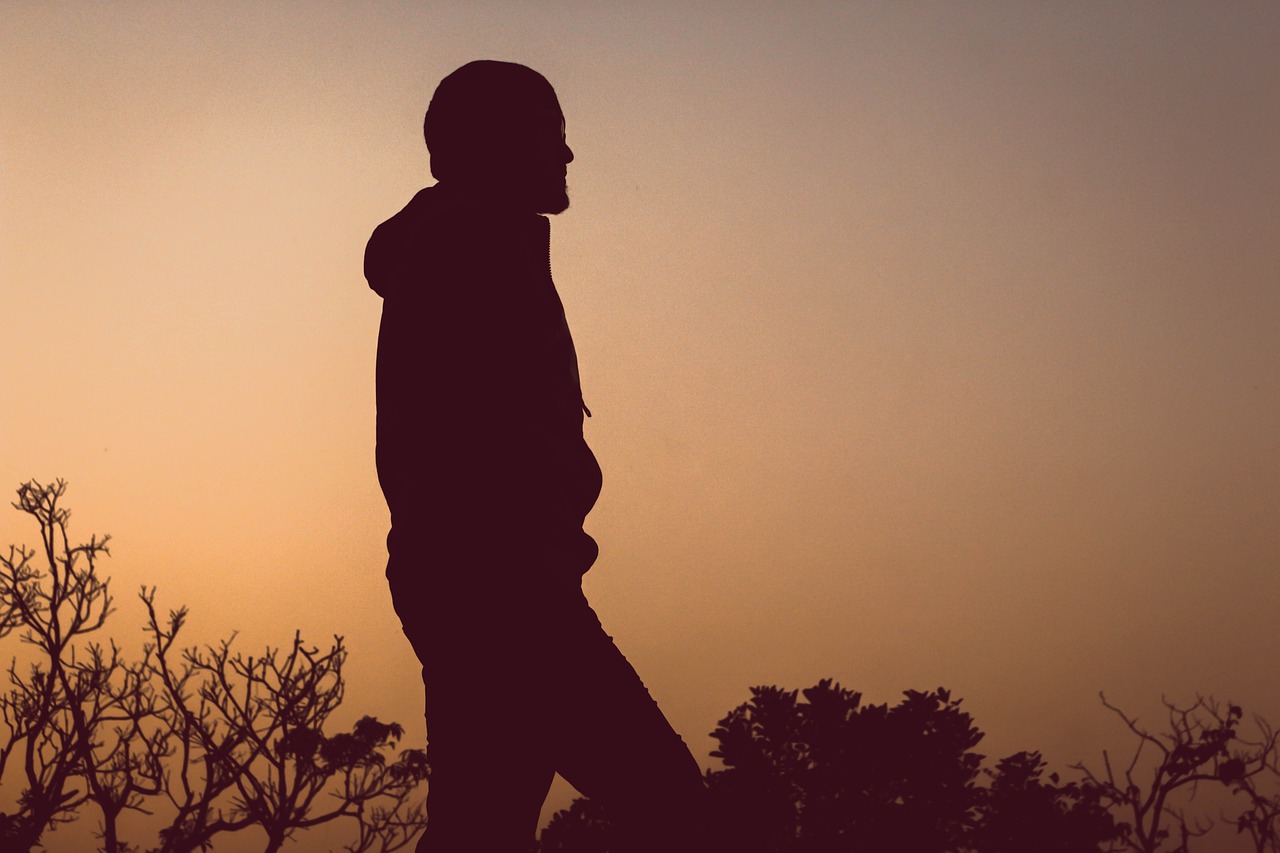5 Symptoms of Prescription Drug Withdrawal (And How To Deal With Them)
Feb 10, 2022
What is antidepressant withdrawal? What is benzodiazepine withdrawal? What are the symptoms of these modern “mystery” illnesses, and how can we deal with them?
Not too long ago I made a video that asked the question, “What is prescription drug withdrawal, and how long does it last?” The answer to that first question, in my mind, is basically any physical, mental, or emotional symptom that overtakes us after we have stopped an antidepressant, tranquilizer, or sleeping medication.
Worldwide, tens of millions of people are prescribed medications such as Paxil, Prozac, Effexor, Xanax, Klonopin, Ativan, and so many others when they are dealing with depression, anxiety, insomnia, and overthinking. But are our family doctors and psychiatrists truly honest about the possibility of a severe withdrawal hitting home when these medications are stopped? Unfortunately, many times that answer is no. Medical professionals might casually warn about a few “side effects,” but they usually never mention the fact that ceasing these medications might result in: torturous insomnia, severe muscle tension, debilitating headaches, skin problems, increased anxiety, thick depression, problems with concentration and logic, strange body pains, intrusive thoughts, a sense of being disconnected from reality, or any one of the other myriad symptoms that, by this point, is a well-documented result of antidepressant and benzodiazepine cessation.
And, unfortunately, people are never warned that these symptoms might last for months or even years.
My personal withdrawal story is one that fell into that protracted category. While I anticipated there might be a few challenges when quitting the Paxil and Xanax I’d been taking for nearly 14 years, I had no idea what really awaited me when, at age 35, I actually followed through with my plan to stop the pills. The pit-of-hell mind torture, the relentless insomnia, the otherworldly fatigue, and the torturous body pains: I really didn’t see any of that stuff coming. And I certainly didn’t foresee several years of such pain.
For a while it seemed that my situation was a hopeless or permanent one, but gradually my symptoms improved, and I was able to regain my strength, recapture my optimism, and increase my joy. And despite the difficulty of what you might be going through right now in your own withdrawal scenario, you need to know that your pain will subside as well. Better days are ahead.
But back to that first question. What is prescription drug withdrawal? What are the symptoms?
Withdrawal has so many bizarre symptoms that it would take an encyclopedic volume to list them all, so in this post I will simply address five of them. I will list these common symptoms of benzo withdrawal and/or antidepressant withdrawal, and then I will share some tips for coping with them. And coping is important, because if we can survive the worst of the pain through the use of tools and strategies, the symptoms will eventually get better, and we will retain those skills we learned while dealing with them.

"Your Mind Will Return to You."
1. Confusion
This symptom was beyond disconcerting for me. As a writer and someone who always prided himself on possessing a certain level of intelligence, I was, to say the least, distraught by the fact that I suddenly couldn’t organize my thoughts or make sense of certain instructions and everyday concepts. For some reason, I was especially overwhelmed by the process of organizing a small daily schedule (on Saturdays, for example, when I didn’t have the structure of work, I sometimes found myself immobilized by the prospect of having to decide how to proceed with my day). And in addition to that dilemma, I was at times confused by words, appointments, and even the idea of making a sandwich. Who would have ever guessed?
My advice to anyone out there who is currently experiencing confusion because of antidepressant withdrawal or benzodiazepine withdrawal is threefold:
1) Make lists and write down instructions, schedules, and anything else you deem important. This tactic is a great short-term aid to maintain productivity.
2)Continue to read, write, and otherwise exercise your brain as you are able to.
3)Don’t panic; the brain has tremendous healing capabilities, and as your withdrawal progresses, the mental fog will lift and your capabilities will return.
2. Anxiety
Many of you out there going through benzo withdrawal or antidepressant withdrawal know what its like to have that “other” kind of anxiety—the kind that often seems ratcheted up to a 10 on the intensity scale—the kind that usually seems to have no traceable origin other than withdrawal.
So, what can we do to survive the worst of this “existential nervousness” until it, like the other withdrawal symptoms, subsides? My first suggestion (and one that eventually seems to be a foolproof remedy to many withdrawal symptoms) is exercise. Sweat out the anxiety; wear it down. Sometimes, during the worst of my morning anxiety, I would run on the treadmill for a few precious minutes, anything to bring relief. And as time went on, a regular exercise regimen became an important tool for me—not just in anxiety management, but in self-development as a whole.
Other suggestions for quick fix anxiety management: read comforting devotions, watch a positive video, talk to a friend or family member who “gets you,” or lose yourself in a physical project like yardwork or cleaning.

"Start Thinking Better About Yourself."
3. Intrusive or Self-Defeating Thoughts
Sometimes, the mind can seem like ground zero in the withdrawal battle. Disturbing thoughts might pop into our heads for no reason, and if that isn’t happening, a self-defeating voice might be waiting to steal our hope by saying something like, “You will never recover. You deserve this punishment. Your life is over, and nothing but more misery awaits you.”
Are such thoughts true reflections of our hearts? No, of course not. Are such voices telling the truth? Not a chance. Such thoughts and voices are intruders (i.e., they don’t rightfully belong in our mental space), and as such we must escort them out.
So, how do we do that?
1) We exercise, especially with cardio activities.
2) We remind ourselves of who we were before the withdrawal began, and we remember that we will get back to being that person (and stronger/wiser).
3) We get spiritual. We read devotions, we pray, and we get reminded of how valuable we are.
4) We set goals. The busier we are, the less room there is in our minds for the negative stuff. Plus, as we accomplish more, we will feel better about ourselves and begin to replace the troubling internal voices with positive ones.
5) In general we disengage from thought symptoms, refusing to identify with them. They are pains, like a stomach ache, nothing more. They are not a part of identity.
4. Depersonalization/Derealization
People who haven’t themselves gone through antidepressant withdrawal or benzo withdrawal might wonder, “What in the world is depersonalization/derealization?” A quick answer: DP/DR (as it is colloquially known) is a feeling of being disconnected from life (eerily removed both from the world around us and from our own personality). This common symptom of both antidepressant withdrawal and benzodiazepine withdrawal can be especially disturbing, because even if we are around the people we love, we can feel very alone.
I believe that, in essence, DP/DR is just another way of experiencing an inability to “live in the moment,” and everyone (withdrawal or no withdrawal) struggles with this from time to time. To fight through troubling periods of DP/DR, what can we do? My first suggestion is, you guessed it, cardio exercise, and my second suggestion is to take part in an emotionally moving experience, whether that involves talking to a spouse or other trusted person, watching a (positive) movie, listening to a meaningful song, going to church, or something else that comes to mind for you.

"It's Okay to Rest. You Will Get Moving Little by Little."
5. Fatigue
When I was going through full-blown Paxil withdrawal and also in the midst of my Xanax taper, I can remember feeling fatigued trying to sit up in an office chair. I remember thinking, “What the hell is going on? I’m a grown man, and I’m getting tired sitting in a chair?”
It can be difficult to keep up with the rest of the world when we feel as if our limbs are filled with lead, so we must remember that we don’t have to “keep up” with anyone while we are in the process of healing. As we recover from withdrawal, it is okay to rest more than usual. It is also okay to decline a few invitations and generally do a little less than we are used to doing. So, if you are struggling with otherworldly fatigue right now, my suggestions are to:
1) Rest without feeling guilty about it
2) Don’t overcommit yourself, as we often feel pressured to do in this busy society.
3) Begin paying proper attention to nutrition that builds strength, and
4) You guessed it, exercise (as you are able to). Exercising when you are fatigued might sound counterintuitive, but it will actually go a long way toward increasing your overall energy levels in the long run.
The symptoms of antidepressant withdrawal and benzodiazepine withdrawal are many, but no matter which of these troubling physical, mental, or emotional pains you are dealing with right now, please know that the situation will get better as time goes on. If you continue to stay patient, positive, and spiritual—and if you remain vigilant about pursuing your best health—then greater and greater measures of healing will come your way.
Would You Like to Join My Members Only Support & Success Community?
Stay connected with news and updates!
Join my mailing list to receive the latest posts and updates from The Lovely Grind.
Don't worry, your information will not be shared.
We hate SPAM. We will never sell your information, for any reason.
